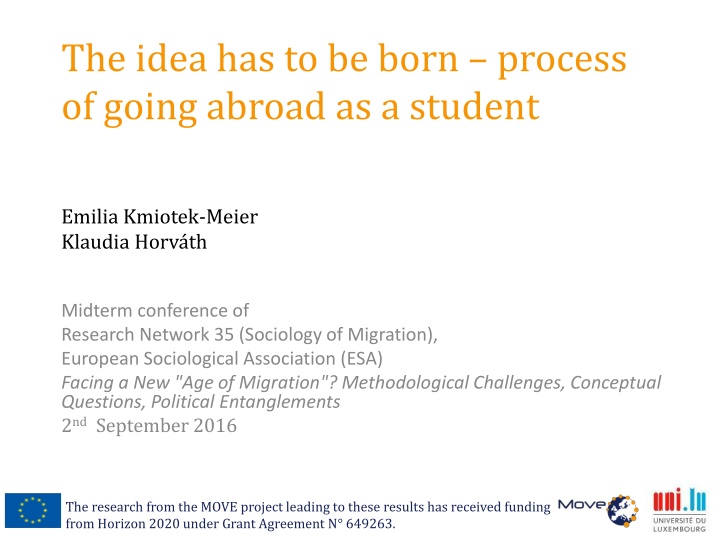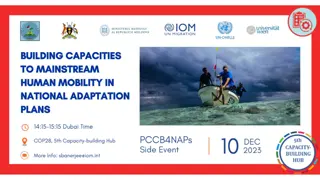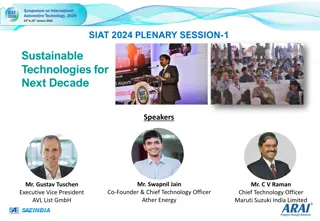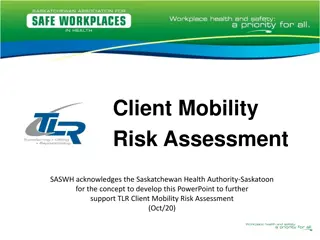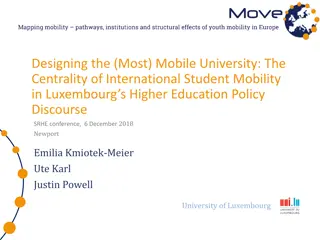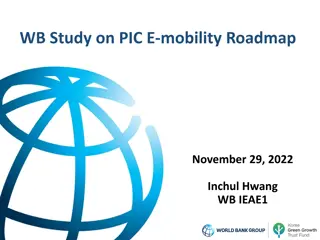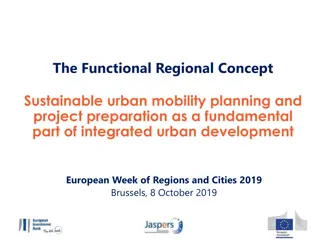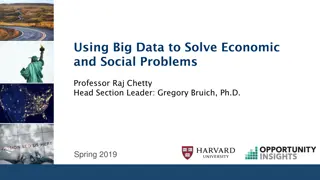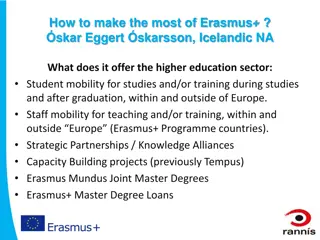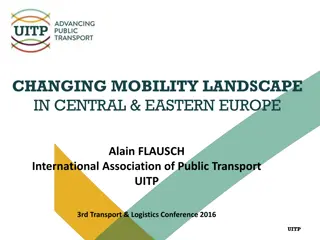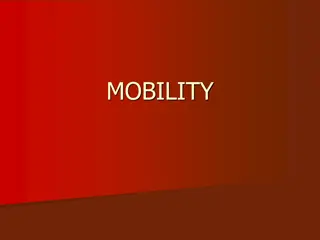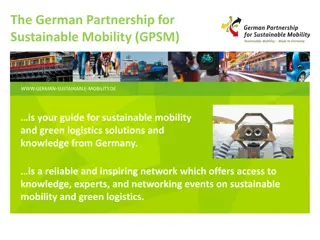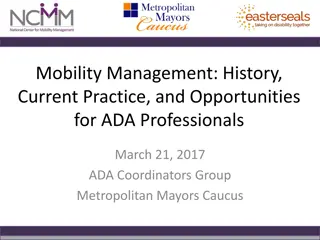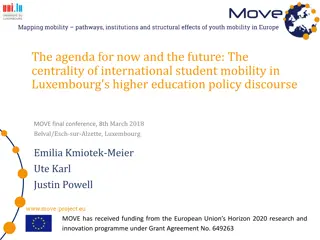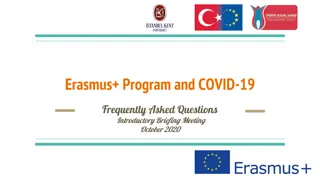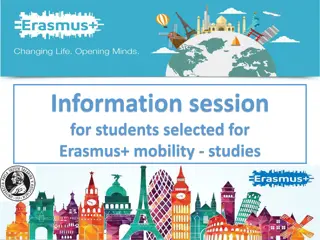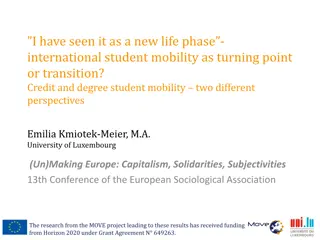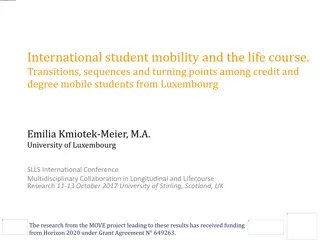Student Mobility Research Network: Challenges and Insights
Detailed insights from the Midterm Conference of Research Network 35 on Sociology of Migration by the European Sociological Association. The research explores student mobility in Hungary and Luxembourg, highlighting methodological challenges, conceptual questions, and political implications. Data and trends in student migration within the EU are analyzed, focusing on credit and degree mobility. The findings shed light on key aspects of student mobility, including popular destination countries, enrollment patterns, and structural aspects of mobility programs.
Download Presentation

Please find below an Image/Link to download the presentation.
The content on the website is provided AS IS for your information and personal use only. It may not be sold, licensed, or shared on other websites without obtaining consent from the author.If you encounter any issues during the download, it is possible that the publisher has removed the file from their server.
You are allowed to download the files provided on this website for personal or commercial use, subject to the condition that they are used lawfully. All files are the property of their respective owners.
The content on the website is provided AS IS for your information and personal use only. It may not be sold, licensed, or shared on other websites without obtaining consent from the author.
E N D
Presentation Transcript
The idea has to be born process of going abroad as a student Emilia Kmiotek-Meier Klaudia Horv th Midterm conference of Research Network 35 (Sociology of Migration), European Sociological Association (ESA) Facing a New "Age of Migration"? Methodological Challenges, Conceptual Questions, Political Entanglements 2ndSeptember 2016 The research from the MOVE project leading to these results has received funding from Horizon 2020 under Grant Agreement N 649263.
Overview I. Student mobility in the Hungary and Luxembourg Preparation process III. Outlook IV. Discussion II. 2
I Student mobility (in the EU) student mobility degree mobility credit mobility part of programme abroad complete programme abroad Recent boom in migration/mobility studies In the EU more research on credit mobility (ERASMUS) some gaps -> personal perspctive 3
Data until now Hungary Luxembourg credit mobility 14 5 19 degree mobility 2 4 6 16 9 25 Data collection: from October 2015 until now Hungary: outgoing; mainly credit mobility Luxembourg: mainly outgoing; credit and degree mobility balanced 4
I Student mobility in Hungary Main destination countries for the Hungarian student: Austria, Germany, United Kingdom (2013: 1655, 1611, 1213 student base of UNESCO data). Popular destination countries too Holland, France. Most of the students come from Europe and Asia. The majority of Europeans are from Germany, Romania and Slovakia. 23.000 Number of students (thousand 21.000 19.000 17.000 person) 15.000 13.000 11.000 9.000 7.000 2003 2004 2005 2006 2007 2008 2009 2010 2011 2012 2013 2014 incoming mobility outgoing mobility Total inbound and outboundinternationally mobile students (in Hungary) Forr s: own work base of UNESCO data 5
I Student mobility in Luxembourg 2003 foundation of the University of Luxembourg degree mobility from LU 75 % of all enrolled in tertiary education study abroad Degree mobility from LU: mainly DE, FR, BE degree mobility into LU + 50% of students enrolled have no LU nationality mainly other EU-countries credit mobility from LU an obligatory semester abroad for undergraduates 6
Preparation process voluntary rational choice STRATEGIES elimination procrastination family forced society-discourse economic institutional 7
Preparation process voluntary x rational choice STRATEGIES elimination procrastination family forced society-discourse economic institutional 8
Voluntary mobility process of elimination (I) Anna (degree from LUX, female, 23-26) Actually, England it was a kind of elimination. Firstly, I wanted I have seen Luxembourgish politicians all those years and they spoke very bad English and it was so embarrassing. And then I though if you want to do something international you have to learn English, and then I thought I don t want to go to Belgium ( ) and I didn't want to stay in my own backyard ( ) and Germany was out because of the language, I speak German ( ) 9
Voluntary mobility process of elimination (II) country N country X country Y country H country Z country U country P country G country O 10
Voluntary mobility process of elimination (II) country N country X country Y country H country Z country U country P country G country O 11
Preparation process voluntary rational choice STRATEGIES elimination procrastination family forced society-discourse economic institutional x 12
Forced mobility elimination Esther, credit from Lux, 27-29 I was really nervous, already one year before. I thought nooo, how should it work? Very important to go to this city was also that I was not going alone, there was also a friend there I also heard that at this university it was possible to have classes only three days in the week. And because I had fear that I am not gonna manage five or six days without coming back home because there were also another universities but there it was not possible [to have classes only 3 days in the week] 13
Preparation process voluntary x rational choice STRATEGIES elimination procrastination family forced society-discourse economic institutional 14
Voluntary mobility rational choice R bert (credit mobility, Netherlands) I deliberately planned my master s studies, and so even as a bachelor student I knew I would go on Erasmus in the master course. Before I applied for the master, I made out a three-year plan for which courses I would take in master, and I included the subjects from the Netherlands too. So I was very aware of where exactly I would go. I didn t do it for the Erasumus experience. But of course I knew from talking to people that Erasmus was not just about studies. 15
Preparation process rational choice procrastination STRATEGIES elimination forced / voluntary family x society-discourse economic institutional 16
Forced / voluntary mobility elimination rp d (credit mobility, Italy) We thought we should spend time abroad at least once, since there s so much propaganda about how you have to go abroad, every one -who can - should go, it s a great opportunity that sticks to your mind. We were walking down the corridor and there was a poster saying we could apply and there was a week until the deadline. I already learned Spanish, I also have a language exam so I thougt, not to go there. I thougt I should learn new languages if I have the chance. It was also important that I could understand a bit the language so that s why I excluded Germany. The reason was the same not to go to the northern countries. So it was between France or Italy. My friends and family advised Italy (...). Because of the dedline I chose Italy. I did research on the internet and I really liked the country . 17
Summary / Outlook 1) Last case: voluntary vs. forced OR continuum 2) differences -> countries? -> types of student mobility? 18
Thank you for your attention! Klaudia Horv th Horvath.klaudia@uni-miskolc.hu Contact: Emilia Kmiotek-Meier emilia.kmiotek@uni.lu University of Luxembourg Facult des Lettres, des Sciences Humaines, des Arts et des Sciences de l'Education University of Miskolc Faculty of Economics Institute of World and Regional Economics Institute for Research and Innovation in Social Work, Social Pedagogy and Social Welfare (IRISS) http://www.move-project.eu The research from the MOVE project leading to these results has received funding from Horizon 2020 under Grant Agreement N 649263. 19
